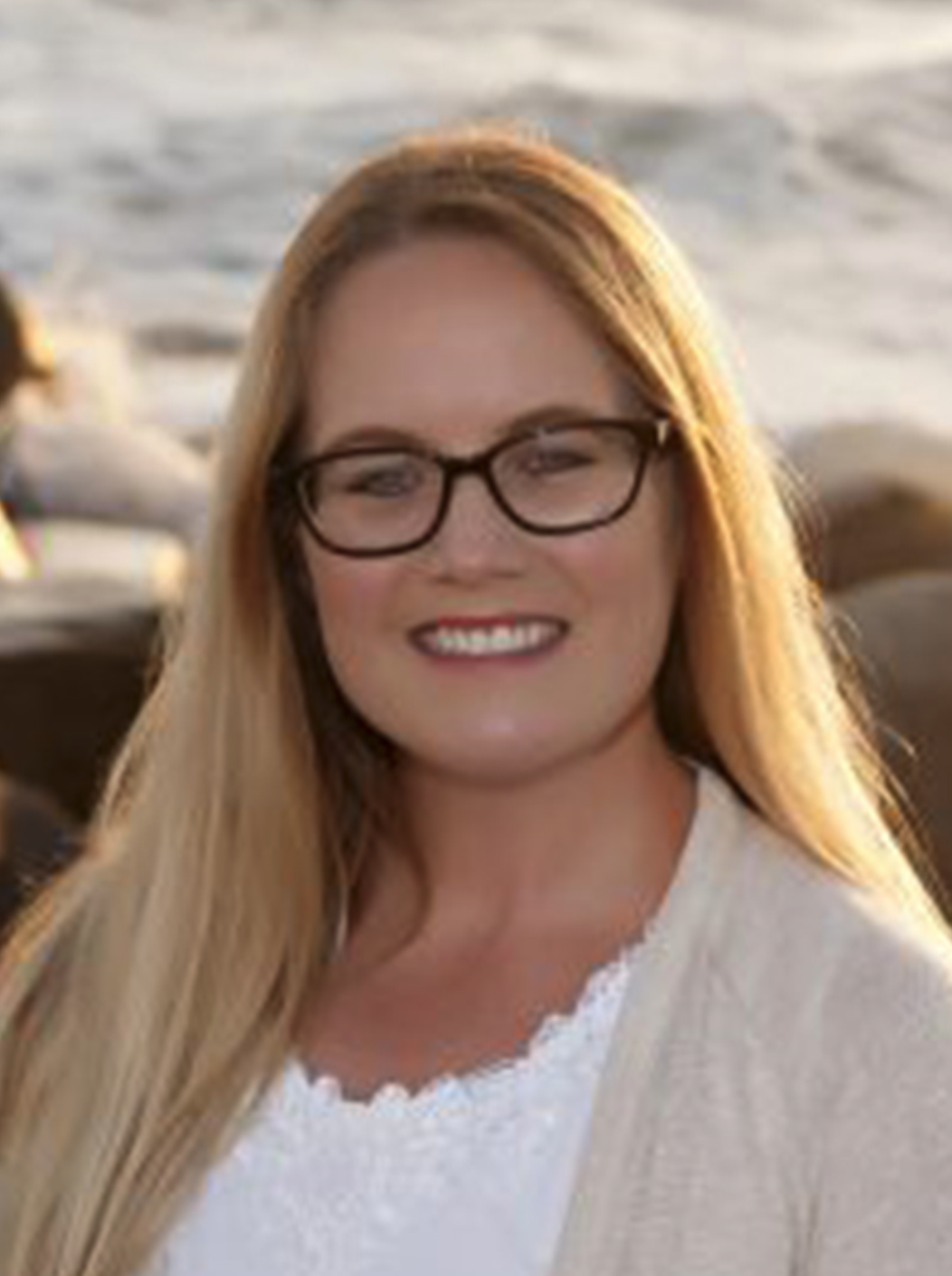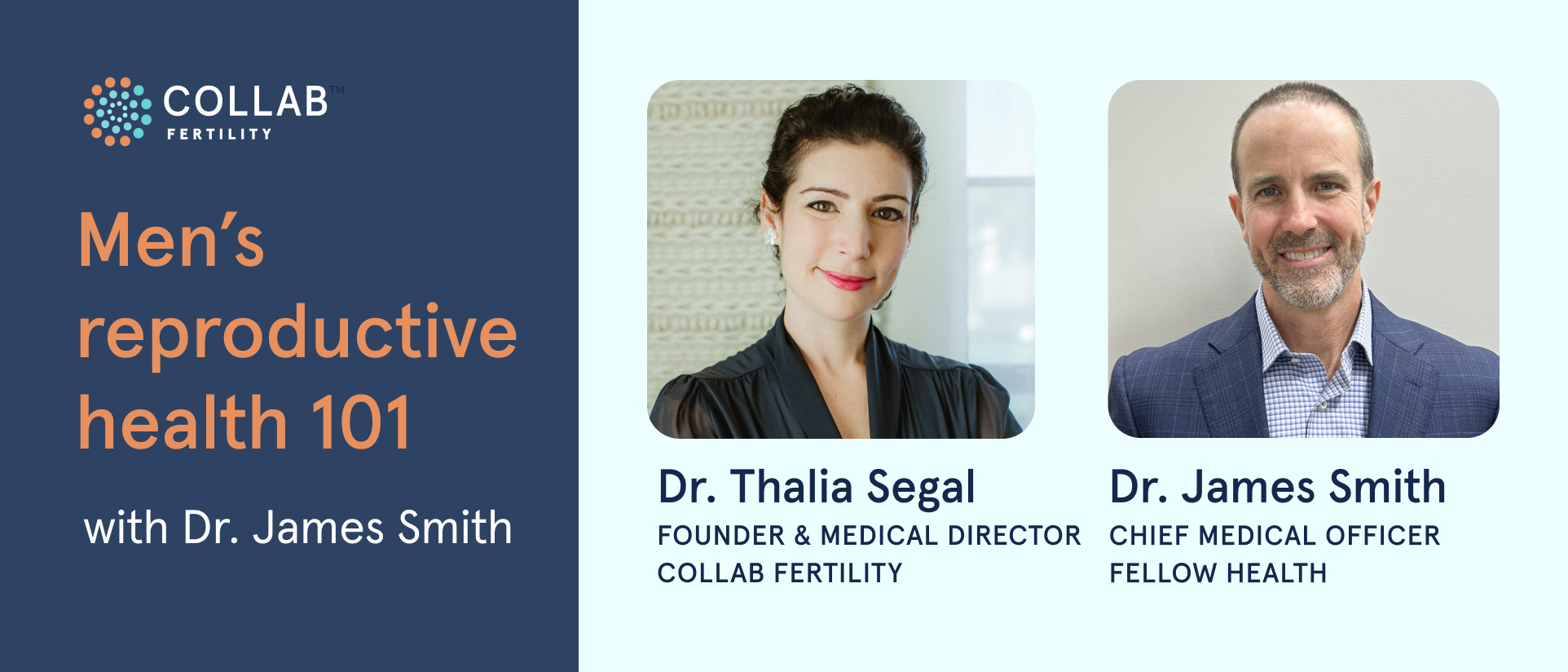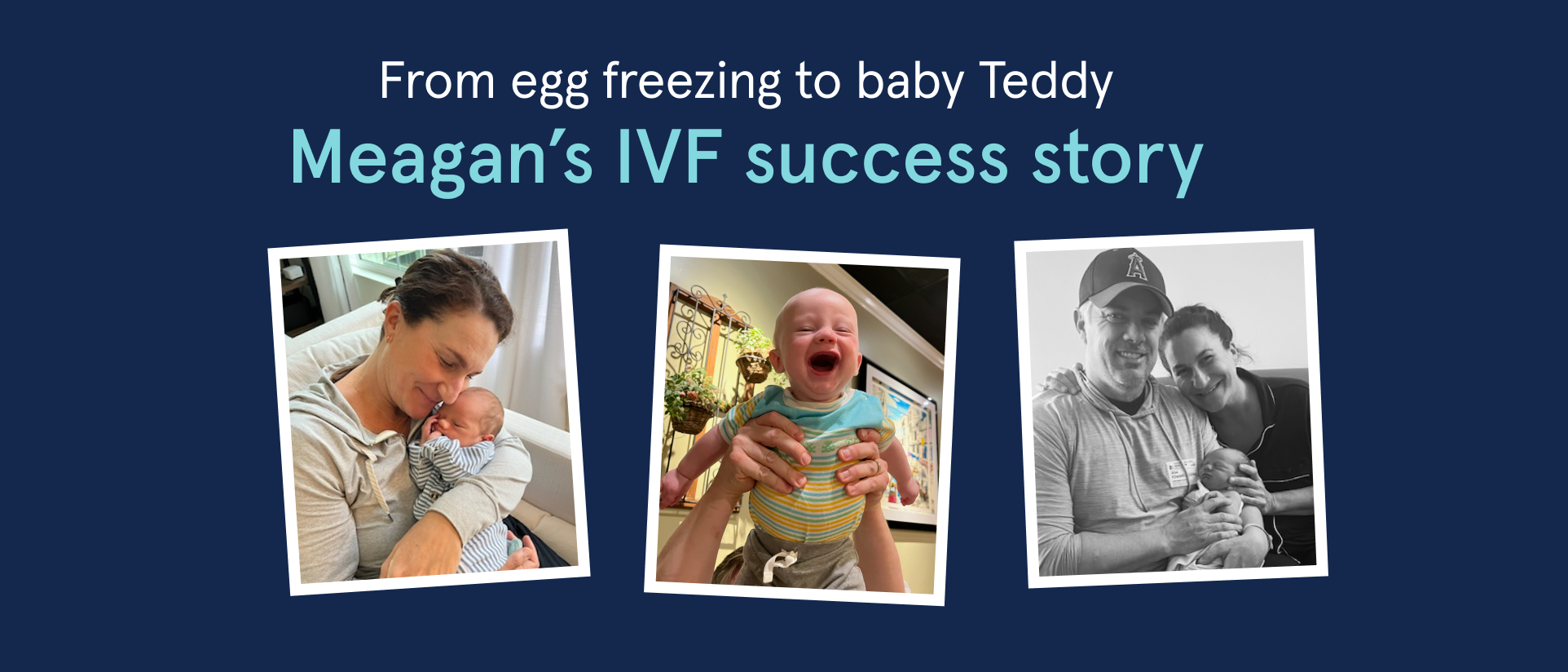
Your guide to gestational surrogacy and egg and sperm donor options
“My children came into my life in various ways, yet all of them are mine, and I love them. I also understand that a child does not have to be born from your body or from your bloodline to be yours completely.”
With approximately 12% of couples in the United States experiencing infertility, third-party reproduction offers new and meaningful paths to parenthood. Whether through the use of donor eggs, donor sperm, or a gestational carrier, individuals and couples facing recurrent IVF failure, miscarriage, congenital conditions, or health concerns that make pregnancy unsafe now have more options than ever before.
At Collab Fertility, we welcome and support patients of all backgrounds on these unique journeys. Our Walnut Creek IVF lab and fertility clinic partners closely with expert psychologists, legal professionals, and surrogacy and donor agencies to guide patients every step of the way—with clarity, compassion, and care.
We’re thrilled to introduce our third-party reproduction coordinator, Angela Hartshorn, a long-time board member of SEEDS (the Society for Ethics in Egg Donation and Surrogacy). SEEDS is a nonprofit with the intent of defining ethical practices in egg donation and surrogacy programs. As a mother who has personally served as both an egg donor and a gestational surrogate—and who underwent fertility treatment herself to complete her family—Angela brings both professional expertise and deeply personal insight to her work.
“My career gave me the chance to assist in well over 1,000 in vitro fertilization (IVF) cycles,” she explains, “and has provided me with deep insight into not only the clinical side, but also the patient care side of treatment. I have a clear understanding of how treatment occurs and how the medical, legal, psychological, and insurance aspects interact.”
When you pursue third-party reproduction at Collab, our entire team of fertility experts will support you. You’ll be guided by Angela, who has supported a wide range of individuals and couples, including single parents, heterosexual couples, same-sex couples, and transgender individuals and couples.
In the Q&A below, Angela breaks down the ins and outs of donor eggs, donor sperm, and gestational carriers—what to expect, what to consider, and how Collab Fertility supports you every step of the way, whether you're a single parent, part of a heterosexual or same-sex couple, or a transgender individual.
What is gestational surrogacy? What is the difference between a traditional surrogate and a gestational surrogate?
Angela: A traditional surrogate uses her own egg, meaning she is biologically related to the baby. A gestational surrogate– or what we refer to as a gestational carrier in the industry – is different; a gestational carrier carries the pregnancy but has no genetic connection to the pregnancy. Clinics typically work only with gestational carriers to help ensure legal clarity and emotional boundaries.
What happens during gestational surrogacy?
Angela: An embryo created using the intended parents’ egg and sperm—or donated egg or sperm—is transferred into the gestational carrier’s uterus. Before that happens, the surrogate must go through medical screening, legal clearance, and psychological evaluations. We coordinate closely with all parties to make sure timelines, medications, and communication are clear. Once medical, legal, and psychological requirements are met, the embryo transfer cycle can proceed.
How does egg donation work?
Angela: Intended parents can select a donor by asking someone within their social or familial circles to donate to them, through an egg donor agency or an egg bank. Intended parents can elect to have a known egg donor or a non-identified egg donor. When selecting to use an egg bank, the eggs are typically already frozen. However, when selecting to use someone they know or an agency, the eggs are typically retrieved via an egg retrieval procedure. We guide them through choosing between fresh or frozen eggs and strongly encourage them to consider known and non-identified donors. Fresh donations can at times require syncing cycles between the donor and the recipient. There are also legal, medical, and psychological requirements for all parties to proceed. Frozen eggs are already retrieved and stored, so the legal and medical requirements for the egg donor are already completed, which can speed up the process. It is important when considering how to proceed that recipients are prepared for the process.
What is the egg donor process?
Angela: Donors undergo a thorough screening process, which includes genetic testing, an ultrasound to assess their ovaries, evaluation of overall health through lab work, a physical examination, infectious disease screening, and a psychological evaluation. Once approved, they take medications to stimulate their ovaries, and she is monitored closely via ultrasounds and hormone testing, and undergoes a minor procedure to retrieve eggs. Those eggs are then fertilized and can be used immediately or frozen for a future IVF treatment.
How do you become a sperm donor?
Angela: Typically, to become a non-identified sperm donor, the donor starts with an application through a sperm bank. Approved donors undergo a detailed screening process—genetic testing, infectious disease testing, semen analysis, and psychological evaluation. If they meet all requirements, they donate regularly over a period of time. At times, men can donate to someone they know, which is referred to as a known (directed sperm donor). The donor will then undergo medical and psychological screening to confirm they are a good candidate for the receiving parent. If approved, a legal contract will be drafted between all parties. Known (directed) sperm donors must still meet the FDA’s screening and testing requirements.
How does sperm donation work when using a sperm bank?
Angela: Intended parents choose a donor profile through a sperm bank, often selecting based on traits like ethnicity, education, or personal values. The donor sperm is frozen, quarantined for required FDA retesting, and released for use after additional testing and eligibility. Clinics coordinate the sperm shipment and ensure everything is ready on the clinical side.
What disqualifies you for egg donation?
Angela: Several things—age that is over the clinic's restrictions or ASRM guidelines, medical conditions, smoking, low ovarian reserve, high BMI, or a family history of genetic disorders. Psychological readiness is also important, and the screening must be passed in order to proceed as an egg donor. Agencies and clinics seek donors who are responsible and understand the commitment required on all levels.
What makes you ineligible for sperm donation?
Angela: Similar disqualifiers: certain medical conditions, a family history of inherited diseases, drug use, or sexually transmitted infections. Age and sperm quality are also major factors. Sperm banks have rigorous standards to protect all parties involved.
Are twins common with an egg donor?
Angela: It’s less common now because of advances in embryo transfer practices. Most clinics recommend transferring a single embryo to reduce the risk of complications. But in some cases, based on the patient’s history, we may transfer two embryos, which increases the chance of twins. There is always the risk of a single embryo becoming identical twins, but the risk is very low at 1%.
Can you use both an egg and a sperm donor?
Angela: Absolutely. Some patients use both for various reasons—medical concerns, same-sex couples, or single parents. In those cases, we also discuss embryo donation as a possible path. It’s important to talk through the legal, emotional, and medical aspects of any third-party reproduction journey.
Can you choose the gender of a donor egg baby?
Angela: In most cases, yes—if you're doing IVF. Embryos can be tested through PGT-A (preimplantation genetic testing for aneuploidy), which includes sex screening. Some patients choose to undergo this procedure to balance their family or reduce the risk of certain genetic conditions.
Does insurance cover donor eggs?
Angela: It depends. Some insurance plans cover the IVF process, but not the cost of the donor or agency fees. At times, we are seeing more insurance companies cover the use of frozen donor eggs, but others may cover nothing. Once you become a patient with Collab, our financial team will assist you by completing an in-depth benefit estimation.
Is a donor egg pregnancy high risk?
Angela: It depends. While some donor egg pregnancies may involve additional monitoring, they aren’t inherently always high risk.
What sets Collab Fertility apart is its integrative care model, The Collab Way. Patients are supported by a dedicated team of experts, including an in-house nutritionist, and are guided in reducing environmental exposures. They’re also connected with specialized therapists and acupuncturists to help optimize fertility treatment outcomes and promote a healthy body and mind.
“My goal is for patients to feel educated and supported. I want to be a lighthouse in what can feel like a storm—offering guidance, clarity, and reassurance. I want to make sure they know they’re not alone.”
Conclusion
Third-party reproduction opens up a world of possibilities if you are facing infertility or other barriers to pregnancy. Whether through donor eggs, donor sperm, or a gestational carrier, these options allow individuals and couples to build their families in meaningful and life-changing ways. As our patient, you will work closely with Angela and our team, ensuring you feel informed and supported throughout every step of the process. Considering third-party reproduction? We are here to guide you through the medical, legal, and emotional aspects with care and clarity. Reach out to schedule a consultation or ask questions at any point in your journey.
What to expect if you're over 45 and using donor eggs
Donor eggs are often used in cases where the intended mother is over 45. Before proceeding with treatment, patients undergo a comprehensive preconception counseling visit with a maternal-fetal medicine specialist to review the risks associated with pregnancy at an older age. This includes a full medical evaluation, pre-pregnancy testing, and cardiac screening to ensure they are healthy enough to safely carry a pregnancy. At Collab Fertility, the age limit for undergoing an embryo transfer using donor eggs is 55.

About Angela Hartshorn, Third-Party Reproduction Coordinator
Angela is Collab Fertility’s third-party reproduction coordinator. With more than 20 years of experience in the fertility field, Angela offers both expert-level knowledge and personal insight, having served as an egg donor, a gestational surrogate, and a fertility patient herself.
Angela supports a wide range of individuals and couples on their family-building journeys, including single parents, heterosexual couples, same-sex couples, and transgender individuals. Her unique background bridges clinical care and compassionate advocacy: over the course of her career, she has been involved in more than 1,000 IVF cycles and has worked alongside over a dozen reproductive endocrinologists at leading fertility centers across the country.
A long-standing member of SEEDS (the Society for Ethics in Egg Donation and Surrogacy), Angela currently serves on the organization’s board of directors, helping to define and uphold ethical standards in third-party reproduction. She is known for her seamless coordination between patients, clinics, legal teams, and global partner networks, ensuring clarity, consistency, and a deep sense of support throughout the process.
Angela brings a calm, knowledgeable presence and a steadfast commitment to every individual she works with. At Collab, she plays an integral role in guiding patients through third-party reproduction with professionalism, empathy, and care.
________________________
Proudly Supporting Local Communities
Collab Fertility is honored to serve families in the East Bay like Danville, Alamo, Orinda, Lafayette, Moraga, Piedmont, and Walnut Creek, as well as many other communities in the Bay Area and beyond, including Oakland, San Ramon, Concord, Pleasant Hill, Santa Rosa, Novato, Napa, Sonoma, and more.
Latest Articles

Men’s reproductive health 101: Dr. James Smith answers common questions about male fertility


